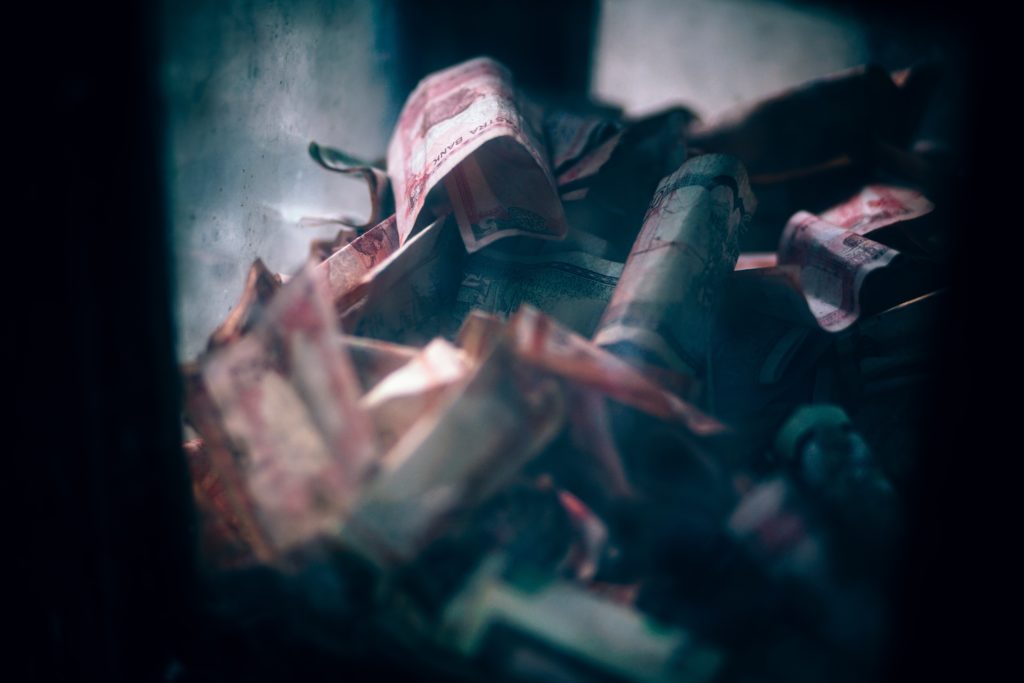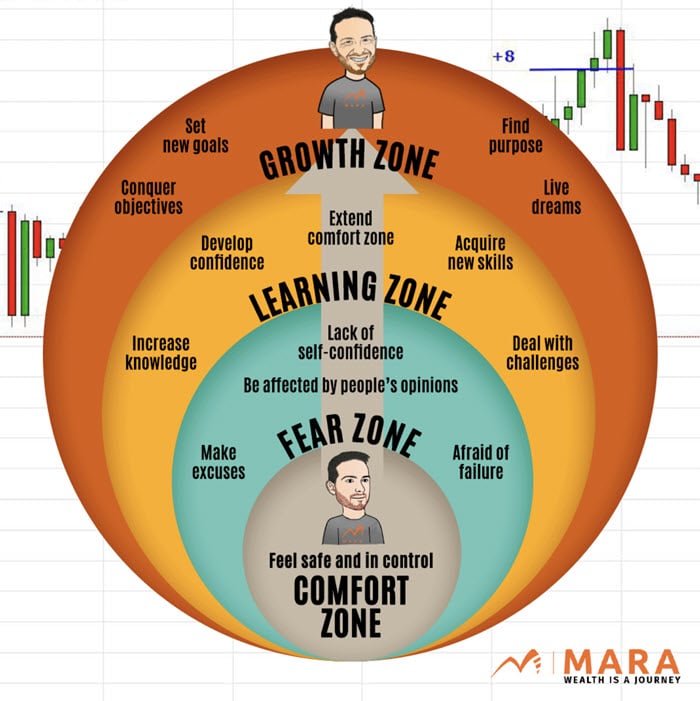3 min read
A Year with "The Trading Mindwheel": Transforming Trading Through Psychology
The following is a guest post from Michael Lamothe.
I'm Michael Lamothe, and today marks an extraordinary milestone: the first anniversary of "The...

You lose money every day. No matter whether you are a winning trader or a losing trader, right now in this moment you are bleeding money.
Let’s do a little thought experiment. Most people reading this do not follow any best practices when it comes to trading. Yes, that’s you.
You also don’t follow proper risk management. And you haven’t even backtested your strategy. Do you know why you are leaving money on the table each day?
Because you want to be a trader but you don’t want to do what it takes to be a trader. You click buy, you click sell, maybe you even apply a stop loss or take profit, but that’s about it.
You are not a trader, not even an excuse for a trader. Ouch!
I know that in trading it is hard to see a direct connection between input and outcome. Cause and effect relations are hard to observe due to the probabilistic nature of the game.
When you train your biceps, your biceps grows. When you journal your trades, your next 10 trades might still be losers. That’s just the way it is.
That is why we need to attack the process each and every day. But where do we get the motivation to attack the process instead of the results? Entertain the following thought for a minute.
Entertain the following thought for a minute.
The risk you take on when opening a trade and the potential profit you could achieve are both functions of your stop loss and take profit orders. Manipulating those orders will skim the Reward:Risk ratio in or against your favor.
But that is not the only way in which you can manipulate this ratio. When you start out trading, all your trades have a much higher risk than reward. Any new trader that starts out probably has a risk of 5 versus a reward of 1 or even worse.
Why? Because they know nothing and if they do know something, they don’t apply it, which is the same or worse.
It doesn’t matter where you place your TP and SL orders on the charts, the RRR is geared against you from the start. Your expectancy is negative.
You can change this by working hard on your game. Most people never do, unfortunately.
Now, for the experiment.
For each of the items below, we assume a value of $100. If you cross it off your list, RRR will go into your favor. If you don’t, it will go against you. Initial RRR when you start out as a new trader is $100:$500.
I could keep this list going forever. These are universal truths that apply to each and every market and each and every trader out there.
If we add up those 20 points, following all of them before taking a trade will skim your RRR from $100:$500 to $2.100:$500. That’s a huge increase to 4:1 from 1:5.
Following only half these points, you would get an RRR of $1.100:$1.500 – because for every point you DON’T follow, you have to add $100 to your risk.
You see where I am headed with this? The rewards of doing your duty as a trader grow exponentially the MORE you do, but the penalties grow exponentially, as well, the LESS you do.
Do you feel like an idiot now for not doing what you know you ought to do? I hope so.
Of course, some activities will have a greater benefit than others. Journaling your trades will, in the long run, make you more money than eating broccoli instead of a pound of butter.
But they all impact your expectancy, the average amount of $ you can expect to make per trade. This is – to me – the most important metric when measuring my efforts.
And of course, this expectancy grows as my account grows. Important is that it remains positive, and I ensure it does by keeping my reward much higher than my risk. Both on the charts as well as in my preparation process.
Reducing the risk of underperformance will give you the edge that you need to compete profitably. You leave money on the table each and every day by not controlling everything that you can control.
Professionals do, amateurs do. Nobody is perfect. But the professionals bleed much less because they cross off maybe 15 of the 20 points I mentioned. Amateurs do none of those. Failure is inevitable.
I just recently wrote a related article about the 7 measures that you absolutely HAVE to take if you want to have any chance of succeeding. The others are “just” profit maximizers but of course equally important.
At Edgewonk and Tradeciety, we have worked with thousands of traders. 90% of the questions we get are similar. One of them always makes my head burst.
The question goes like this: “I’m a beginning trader, do you think I should start journaling right now, or wait until I have a strategy and more structure and then start journaling?”
Asking this is like asking whether you should buy a car first if you want to be a race driver or go to the casino and play roulette until you are broke, then buy the car.
People’s reasoning processes are horribly broken and that is one of the main causes of the high failure rate in this industry. They seek the wrong causes for the wrong effects and thus decrease their RRR tremendously. Their whole trading operation is one gigantic risk producer without any chances for rewards.
What I want to say with this example is that the solutions to your problems are VERY obvious. Ironically, most of you know what to do, but you just don’t do it, because you cannot see an immediate effect caused by your efforts.
And so you will never become a better trader, sad but true. You are looking for instant gratification and by doing so, you take measures that increase your risk and decrease the reward you can gain from trading.
Instead, traders have to look for delayed gratification. Every entrepreneur has to do that too, by the way. The work you do today, you will reap its benefits in 3-5 years maybe. That’s just how it works.
So I really hope that you now feel a bit stupid when not journaling your trades, or when you overleverage, or when you trade a strategy with real money that you never tested on demo first. Because you are literally burning money. Time, energy, effort, money.
Every time you neglect your duties, you might as well throw $100 out of the window. For most of you, that would be more than $2.000 a day. And potentially, much more, because, yes, the earning potential in this game is unlimited. But you are lazy.
You are in this game to make money but everything you do is making you lose your money faster than you can say Black Friday. Every $10 you lose now will cost you $1.000 or more of potential income in the future because of the compounding effect in trading. It’s time to act.
And if you want to stay on your own, that is fine, too. Just remember – do what you have to do. Don’t neglect your duties. You want to be a trader, then act like a trader and not like a maniac gambler at the craps table.

3 min read
The following is a guest post from Michael Lamothe.
I'm Michael Lamothe, and today marks an extraordinary milestone: the first anniversary of "The...

3 min read
It's easy to get discouraged by losses and question your every move. But what if there was a way to track your progress, learn from mistakes, and...

8 min read
Dive deep into the world of finance and high-stakes trading with this selection of movies and documentaries! From the exhilarating thrill of...